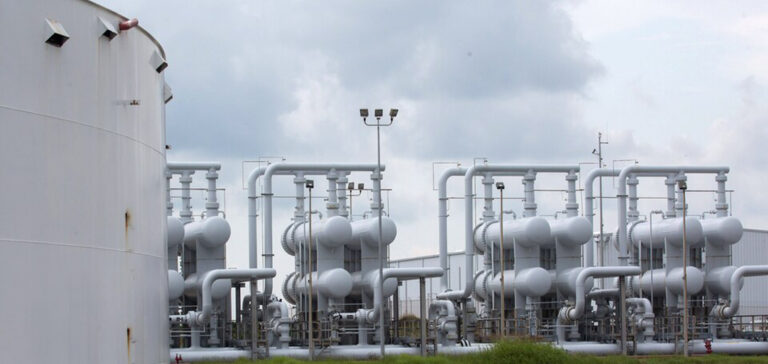The challenges faced by Chinese refineries in the face of rising crude oil costs underline the need to adapt in a constantly evolving market. Fierce competition for limited supplies of Russian oil and the lifting of US sanctions on Venezuelan crude oil are creating considerable challenges for China’s independent refineries, known as “teapots”. These facilities account for around one-fifth of global imports by the world’s largest crude oil importer. They played a key role in importing crude oil mainly from Iran, Russia and Venezuela, all countries facing Western sanctions, saving billions of dollars thanks to affordable raw materials.
Falling margins
The profitability of “teapots” has been seriously affected, with average refining margins falling to around 450 yuan ($61.50) per tonne in October, from a peak of almost 1,200 yuan in March. This fall came as the price of Brent crude oil, the world’s benchmark, topped $90 a barrel, and strong demand for Russian oil drove up ESPO prices, with premiums instead of discounts. ESPO Russian light sweet crude for December arrival is now offered at a premium of around $1 per barrel to ICE Brent, a reversal from the $7 per barrel discount at the start of the year.
Lifting Sanctions on Venezuela
But a recent announcement has added another element to this complex equation. On Wednesday, in what is the most far-reaching easing of US sanctions imposed by the Trump era on Caracas, the Biden administration largely lifted restrictions on Venezuela’s oil sector. This decision follows an agreement between the Venezuelan government and opposition parties ahead of the 2024 elections. In response, Venezuela’s state oil company PDVSA has already begun contacting customers with crude oil supply contracts.
Consequences for Teapots
The possible detour of supplies to China by Venezuela is a source of concern for the “teapots”. Since the US imposed sanctions in 2019, Chinese refineries have become the main buyers of Venezuelan oil, importing just over 400,000 barrels per day (bpd).
Observers expect supplies from Venezuela to decline over the coming months. Caracas may favor sales to Europe and the United States, as well as to major oil companies, to the detriment of Chinese “teapots”. Prices for Venezuelan Merey 16, a heavy crude with a high sulfur content, have already risen to a discount of around $31 a barrel on Brent ICE, just after the sanctions were lifted. This represents a reversal of the discount of around $38 a barrel at the time of the sanctions, on a free-on-board (FOB) basis.
Market and Consumer Challenges
However, bids for Merey remain stable at a discount of around $22 a barrel to Brent ICE, on a delivered-ex-ship (DES) basis in China. This is partly due to the fact that buyers and sellers remain on the sidelines, preoccupied by the current uncertainty.
Chinese “teapots” have traditionally used Venezuela’s Merey and Boscan crude oils because of their low prices, particularly for bitumen production. The heavy quality of these Venezuelan oils enables refiners to circumvent the limited quotas for crude oil imports.
Official Chinese data do not provide exact figures on Venezuelan imports, but it is important to note that the majority of oil originating from Venezuela, as well as Iran, is repackaged by traders as crude oil or “other heavy oil” from Malaysia.
Current trends indicate that the price of Merey will certainly rise in China as teapot supplies become tight due to sustained demand. The situation is constantly evolving, and its impact on the profit margins of China’s independent refineries deserves close attention.
Impact on the market and consumers
The situation of Chinese refineries, or “teapots”, in the face of rising crude oil costs is a clear example of the complex challenges facing global economies. The interconnection of oil markets, international sanctions and political decisions have a direct impact on industry players and consumers alike.
For China’s “teapots”, the current situation highlights the need to rapidly adapt their business models to cope with the growing uncertainty of crude oil supplies. The repercussions of lifting sanctions on Venezuela, for example, could translate into higher crude oil prices on the Chinese market, potentially affecting energy and petrochemical costs for local consumers.
Ultimately, this situation underlines the importance of stable and diversified energy supplies for national economies. It also reminds us that fluctuations in world crude oil markets have repercussions on corporate profit margins and the daily lives of millions of people.





















